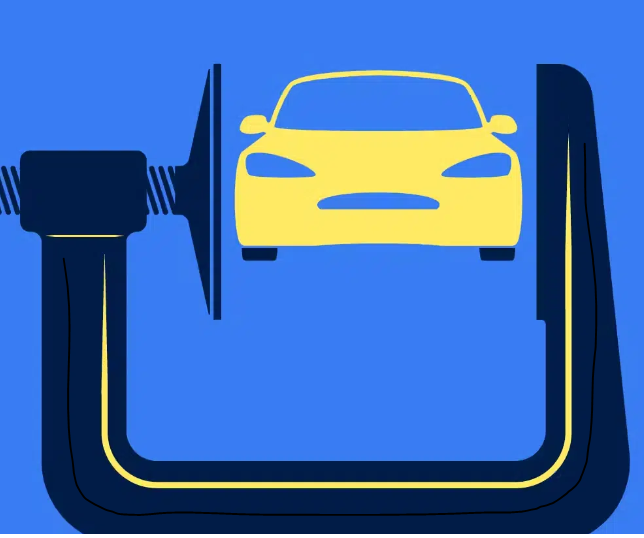When applying for a car loan, one of the most important factors that lenders consider is your credit score. Your credit score not only determines whether you’ll qualify for a loan but also significantly influences the interest rate you’ll be offered. Understanding the relationship between your credit score and car loan interest rates is crucial in making an informed decision about your financing options.
How Credit Scores Affect Car Loan Interest Rates
Your credit score is a numerical representation of your creditworthiness, which lenders use to assess the risk of lending you money. The higher your credit score, the less risky you are perceived to be, and the lower your interest rate will typically be. Conversely, a lower credit score indicates to lenders that you may be more likely to default on the loan, which results in higher interest rates to compensate for the increased risk.
Car loans, like other types of loans, are often divided into different risk categories based on credit scores. Lenders use a variety of scoring models, such as the FICO score or VantageScore, to determine your creditworthiness. These models generally categorize credit scores into the following ranges:
- Excellent Credit (750 and above): Individuals with excellent credit are considered low-risk borrowers and often qualify for the best car loan interest rates.
- Good Credit (700-749): Borrowers in this range still qualify for competitive rates, though not as favorable as those with excellent credit.
- Fair Credit (650-699): Applicants with fair credit may face higher interest rates as they are seen as higher-risk borrowers.
- Poor Credit (below 650): Those with poor credit may struggle to secure a car loan or may be offered loans with significantly higher interest rates.
Why Your Credit Score Matters for Car Loan Interest Rates
Lenders want to ensure that they will be repaid in full and on time. As such, a borrower’s credit score plays a critical role in determining the risk to the lender. A high credit score signals that you have a history of making payments on time, managing debt responsibly, and not defaulting on loans. Lenders view this as a sign of reliability and are more likely to offer a low-interest car loan to these borrowers.
In contrast, individuals with lower credit scores may have missed payments in the past, defaulted on loans, or accumulated too much debt relative to their income. Lenders take this into account by offering these borrowers higher car loan interest rates, which helps offset the risk of lending to someone with a lower credit score. While this means you can still get a car loan with a low score, the financial burden will likely be higher in the long run.
How to Improve Your Credit Score for Better Car Loan Rates
If your credit score is lower than you’d like and you’re looking for ways to secure a better car loan interest rate, there are several steps you can take to improve your creditworthiness:
1. Pay Your Bills on Time: One of the most significant factors affecting your credit score is your payment history. Late or missed payments can severely damage your credit. By making all of your payments on time, you can improve your credit score over time.
2. Reduce Your Credit Card Balances: Your credit utilization ratio (the amount of credit you’re using relative to your available credit) is another factor that influences your score. Aim to keep your utilization below 30% of your total available credit to improve your score and, in turn, your car loan interest rate.
3. Avoid Opening New Credit Accounts: Each time you apply for new credit, it can result in a hard inquiry on your credit report. While a single hard inquiry may not have a significant impact, multiple inquiries can lower your score and make you appear risky to lenders.
4. Check Your Credit Report for Errors: Sometimes errors or inaccuracies on your credit report can affect your score. Regularly review your credit reports for any mistakes and dispute any discrepancies that may negatively affect your score.
5. Consider a Co-Signer: If your credit score is low, consider asking someone with a higher score to co-sign the loan. A co-signer provides the lender with additional security, which can help you qualify for a lower interest rate.
What to Expect with Different Credit Scores
The difference in interest rates between excellent and poor credit can be substantial. Let’s look at how your credit score might influence the interest rate on a typical car loan:
- Excellent Credit (750 and above): Borrowers in this category can expect interest rates as low as 3% to 5%, which can save thousands of dollars over the life of the loan.
- Good Credit (700-749): Those with good credit may be offered rates between 5% and 7%. While not the lowest available, this still represents a competitive rate.
- Fair Credit (650-699): Interest rates for borrowers in this range can vary, but typically, they will be between 7% and 12%, depending on the lender and the term of the loan.
- Poor Credit (below 650): Borrowers with poor credit can expect rates of 12% or higher. In some cases, interest rates can reach 20% or more, depending on the lender’s policies and the borrower’s financial situation.
Strategies to Secure the Best Car Loan Interest Rates
To secure the best possible car loan interest rate, here are a few tips:
1. Shop Around: Don’t settle for the first loan offer you receive. Compare car loan interest rates from different lenders, including banks, credit unions, and online lenders, to find the best deal.
2. Make a Larger Down Payment: A larger down payment can reduce the loan amount, which may result in a lower interest rate. Additionally, a larger down payment can show lenders that you are financially stable and less risky.
3. Opt for a Shorter Loan Term: Choosing a shorter loan term, such as 36 months instead of 60 months, may result in a lower interest rate. Although your monthly payments will be higher, the total interest paid over the life of the loan will be lower.
4. Consider a Pre-Approval: Getting pre-approved for a loan allows you to see what interest rates you qualify for before stepping into a dealership. This can help you negotiate better terms and avoid higher interest rates.
Conclusion
Your credit score plays a pivotal role in determining the interest rate you will be offered on a car loan. A higher credit score can help you secure a low-interest loan, saving you money over time. However, even if your credit score isn’t perfect, there are ways to improve your chances of getting a competitive rate. By understanding the impact of your credit score and taking steps to improve it, you can position yourself for better financing options when purchasing your next vehicle.


